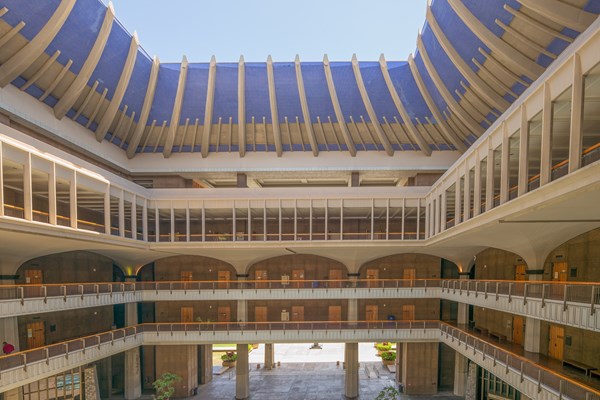Priority bills on their way to the Governor’s desk for consideration
May 28, 2024

It was a busy 2024 legislative season, which wrapped up on May 3. Ulupono Initiative pushed for several important measures that involved making policy changes that would further its mission in the areas of local food production, renewable energy and freshwater management.
“With the much-needed focus and attention towards Maui recovery efforts, we are pleased and grateful that lawmakers were able to support some of our top priorities this legislative session,” said Micah Munekata, Ulupono Initiative’s director of government affairs. “We also thank our partners in the community for their collaboration and support.”
Here’s a look at the bills that passed:
SNAP “DA BUX” Funding
The Hawai‘i Healthy Food Incentive Program, commonly known as DA BUX, will continue through allocated funds in State Budget Bill (HB1800 CD1). This program provides matching funds to participants of SNAP (Supplemental Nutrition Assistance Program, formerly Food Stamps). By securing state funding for DA BUX, Hawai‘i can leverage federal dollars to support local families and farmers, ensuring that the money remains within the local economy. Recognizing the importance of this initiative, key lawmakers have secured an annual allocation of $1.5 million for DA BUX. This state funding will unlock an additional $1.5 million in federal funds, creating a total annual budget of $3 million for the program. At the grocery store checkout, this amount will effectively double to $6 million in purchasing power for local produce. According to data from the Food and Nutrition Service on SNAP’s economic multiplier, this translates to an annual economic impact of approximately $12 million injected into the local sustainable food economy. You can read more about the program in “Fresh funding for keiki food programs must be maintained,” a column by Lauren Zirbel, president of the Hawai‘i Food Industry Association, published on May 13 in the Honolulu Star-Advertiser.
Geothermal exploration funding
Another key component of the State Budget Bill is $6 million (non-recurring) that will fund geothermal energy exploration through the Hawai‘i Technology Development Corporation. Since wind and solar are not enough for Hawai‘i to meet its 100% renewable energy goal by 2045 as outlined in Hawai‘i State Energy Office’s Hawai‘i Pathway to Decarbonization Report, firm sources, such as geothermal, are needed. Preliminary research suggests that geothermal energy potential exists on several islands. Our state is facing competing demands for available land, and geothermal projects use the least amount of land per megawatt of renewable power produced.
State Department of Agriculture grant writer
Full-time grant writer positions will be funded through HB1800 CD1 to help secure federal funding for local farmer and ranchers. The “return on investment” in this position is sustainable. For reference, Ulupono provided funding for grant writers with nonprofit organizations such as The Kohala Center, the O‘ahu Agriculture and Conservation Association, and the Hawai‘i Farm Bureau between 2014 and 2023, resulting in a total of approximately $140 million, which was 100 times the full grant writing investment. It’s believed the State will see a similar return on its investment. This position will be funded through a trust fund with non-General Fund dollars and legislators notably increased the salary to be more competitive with the market.
State Department of Health revolving fund flexibility
Federal capitalization grant funds will be transferred between the Water Pollution Control Revolving Fund (CWSRF) and the Drinking Water Treatment Revolving Fund (DWSRF) by the State Department of Health (DOH) as authorized in HB 2453 CD1. The DOH administers these low-interest loan programs, which are funded principally by capitalization grants provided by the U.S. Environmental Protection Agency to improve public drinking water systems and wastewater treatment and distribution systems in the state. No additional state funding will be used as the DOH is authorized to transfer up to 33% of any year’s capitalization grants between the two funds. This allows the agency to direct money to drinking water or wastewater infrastructure based on the needs of the community and provides another tool to respond during a crisis, such as the Red Hill fuel spill or the Maui wildfires.

